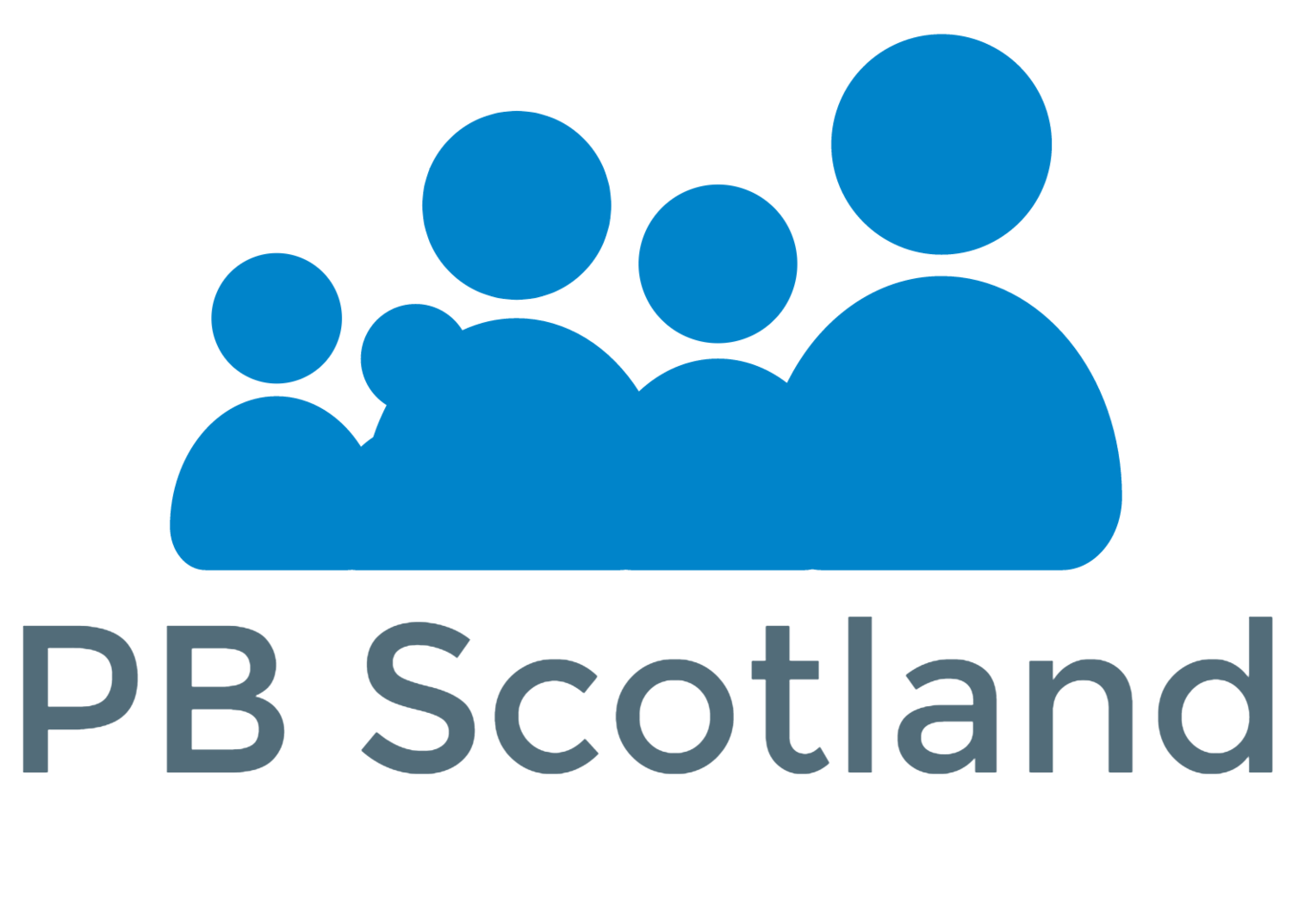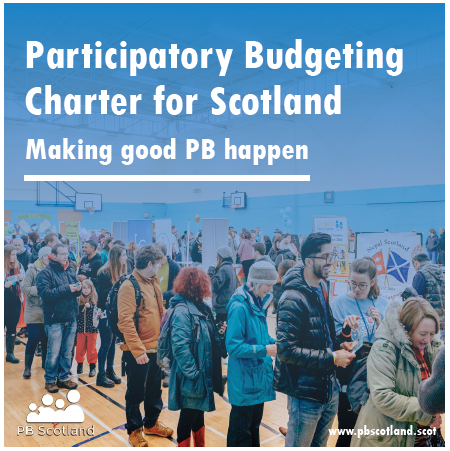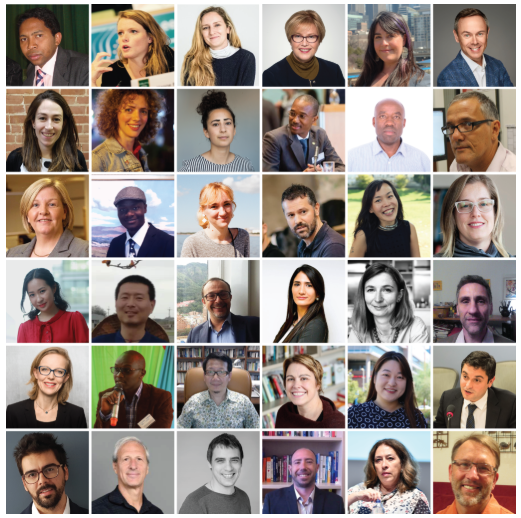Heading to the #PBConf19? Here's what you need to know
/We can’t wait to see you tomorrow at the PB Scotland Conference 2019 at the John McIntyre Conference Centre.
Read MoreUniversity of Glasgow Deliberation conference - Limited places available
/Next week, the University of Glasgow’s Politics Department will be hosting a two-day event to provide practitioners the chance to explore the experiences of deliberation from across Europe.
The COST Action “Constitution-making and deliberative democracy” aims to contribute to the advancement of knowledge in the broader field of democratic deliberation and in particular with reference to constitution-making. In Europe and across the world, several countries are turning to deliberative democracy to reform their constitutions, and in many others this question is high on the political agenda. Such transformation also shuffles quite radically the role of the citizenry regarding constitutional changes. Traditionally such changes are the sole responsibility of elected officials, in collaboration with experts. With the deliberative turn, many more actors may be involved in the designing of constitutions: citizens both individually and collectively in the forms of informal associations, social movements, civil society organisations, participatory consultants and research teams.
The Action seeks to bring together all these actors – who are usually not in contact – to discuss and reflect on this democratic challenge, not only in terms of normative ideals but also and above all on the empirical challenges raised by this complex and multi-faceted democratic transformation.
The Action’s meeting on 24-25 October in Glasgow will provide many practitioners the possibility to present the experiences of deliberation in their countries - a great opportunity to learn from good practices across Europe. The meeting takes place between 09.00 and 13.00 on 24 and 25 October in Wellington Church (at University of Glasgow).
There’s more info here.
The Action is happy to welcome at its meeting five participants from the Participatory Budgeting Conference on a first-come-first-served basis. Please enter your details below and we’ll get back to you.
Let’s Talk – The Life Changes Trust
/Paul Nelis went along to the ‘Festival of Voices’ in Perth Concert Hall to learn about a new approach to Participatory Budgeting (PB).
Read MoreGlobal Participatory Budgeting Hub
/We’re delighted to see this week's announcement of global leadership for participatory budgeting.
Read More#YOUCHOOSE4 is now open to applications!
/There is a total of £32,000 available for distribution through tsiMORAY’s latest round of Participatory Budgeting (PB). The closing date is 21st October.
Read MorePB Conference 2019: Josh Lerner - Keynote speaker
/We're absolutely thrilled to be welcoming Josh Lerner, author, Co-Executive Director of the Participatory Budgeting Project and director of the new Global PB Hub.
Read MoreFunded through PB, young disabled people take on accessibility for all in Pollok
/Pollok Access Fund’s ambition to make Pollok more accessible for young disabled people and the wider community.
Read MorePaper explores Irish PB context
/A new report looks at how PB is being used in Ireland and explores the learning from across the world.
Read MoreApplications open for Ward 6 Glasgow PB
/Groups can now submit applications for the Ward 6 Community Choices participatory budgeting process.
Read MoreGorbals Ideas Fund 'Measure Up' using the PB Charter
/Gorbals Ideas Fund have used the PB Charter for Scotland to evaluate their participatory budgeting processes.
Read MoreYoung people drive change in Pollok
/Young disabled people who live in Greater Pollok are acting together to make Pollok more accessible for all.
Read MoreYoung People can have their say again in North Ayrshire
/Individuals, clubs, groups and parent councils from across North Ayrshire are invited to bid for up to £1000 per Locality to help make a difference for young people in their community.
Read MorePB Charter Learning Event Report: What's the difference between dialogue and deliberation?
/Proper dialogue and deliberation is vital for people taking part in PB to come to the best decisions for their communities. But how much deliberation is really happening as part of participatory budgeting (PB) in Scotland?
This event was part of PB Scotland’s launch of the PB Charter for Participatory Budgeting - the charter sets out seven key features showing what a fair and high quality PB process should look like.
Deliberation is one of those key features:
“PB supports communities to access information, share ideas, listen to each other and consider different views.
Sharing ideas and views helps people to learn more about different issues and leads to informed decisions that are best for the whole community.”
To explore this further we heard from two contributors and brought more than 60 people together to share their ideas and experiences from across Scotland.
Oliver Escobar Senior Lecturer in Public Policy, Politics & International Relations at University of Edinburgh.
Oliver brought us through the context of PB and participation so far in Scotland, exploring the importance of deliberative democracy where it’s more than ‘counting heads’ and instead about supporting discussion on an equal and inclusive basis - deepening participants’ knowledge of issues in play.
But what’s the difference between dialogue and deliberation?
Dialogue is a form of conversation that focuses on building and understanding and relationships...
Deliberation includes reflection on preference, values and interests...
What’s crucial, Oliver said, is combining the both into the ‘D&D’ model. In the context of participatory budgeting, this allows for more exploration, discovery, learning and scrutiny. It means PB:
Helps to reach decisions that are well justified
Builds understanding and consent for decisions we may disagree on
Can transform uninformed views and preferences through open and inclusive conversations
Can avoid ‘groupthink’ and the ‘echo chamber effect’ (i.e. law of group polarisation)
“Talk without action can be toothless but action without talk can be mindless.”
Sandra Ross, Community Learning and Development, Aberdeenshire Council
Sandra spoke about her experiences in Aberdeenshire Council working through participatory budgeting and mini publics. Dialogue and deliberation were key parts of these processes, with three mini publics being run in the Aberdeenshire area.
Participants were paid £50 day and session were designed to ensure people could attend from a range of backgrounds / needs.
The event in Fraserburgh focused on child poverty - a big issue in the local community, where 12 people were asked too contribute their views. Through this process participants developed ideas around the the issue of school meals and food poverty.
Through contributions from speakers and deliberative discussion, it emerged that some children might go home Friday and not get a full meal until the following Monday. One change that came from the mini public process was having schoolsmeals available earlier in the day, so young people didn’t have to wait until lunchtime, as well as developing breakfast clubs with local businesses.
The key learning from Sandra was…
The topic can change - the methods are flexible.
Timings are vital
Be clear to speakers about what they're asked to do
Not all participants can make every session, so don't be disheartened.
“Mini publics one of the most valuable engagement tools I use in my work.”
Discussion and wrapping up
Following both inputs we came together in groups to discuss what we’d heard and delve into three questions:
How might we use dialogue and deliberation in our practice?
Who supports and facilitates to make this happen?
Where does dialogue fit in a PB cycle?
This led to some great discussions and feedback, with the range and depth of knowledge of PB and other participative methods on display from those in the room. Some of the issues raised included:
The importance of accessibility of PB events
Openness and clarity of information
The amount of time and resources dialogue and deliberation can take
Online deliberation - how does that work?
The importance of a diversity of voices, but how difficult that can sometimes be for public authorities
How much we can learn from youth focused PB
How well do we do dialogue? Do we have the skills? Do we rush into decision making?
The need for good quality facilitation to enable deliberation to happen.
Community involvement in deliberative processes
How do we move from the ‘quick vote’ appeal to PB towards longer more in depth processes?
Ongoing cycle of PB - less about yearly cycles. Getting it into the DNA of how we work.
A huge thanks to everyone to spoke and contributed throughout the day!
You can download the slides from the day here.
North Ayrshire's PB progress
/Catch up on the PB activity from North Ayrshire.
Read MoreSave the date! The PB Scotland Conference 2019: Going Global 🌍 →
/23rd October 2019 in Edinburgh - join us to explore how participatory budgeting is taking hold across the globe and here in Scotland.
Read MoreeDemocracy for Canadian Cities receives a Major Boost
/Ethelo has received a $300,000 Social Innovation Fund grant from the McConnell Family Foundation to advance eDemocracy.
Read MoreThe Power of Youth – Young People Setting Local Priorities
/Bids are being invited for a share of £70,000 that is being made available for Youth Work Projects across Angus.
Read MorePB Charter Learning Event: Deliberation, 16th August, Glasgow
/Join us to explore a key feature of the charter at our latest learning event.
Read MoreHow to increase trust in government – PB!
/The World Bank has published research showing that municipalities in Brazil that give citizens the opportunity to voice their preferences on policies and spending collect significantly more local taxes.
Read More


















